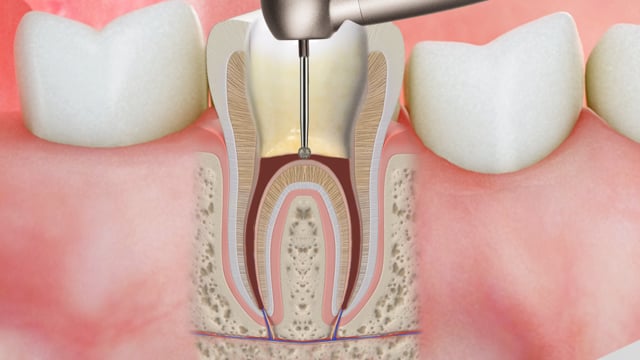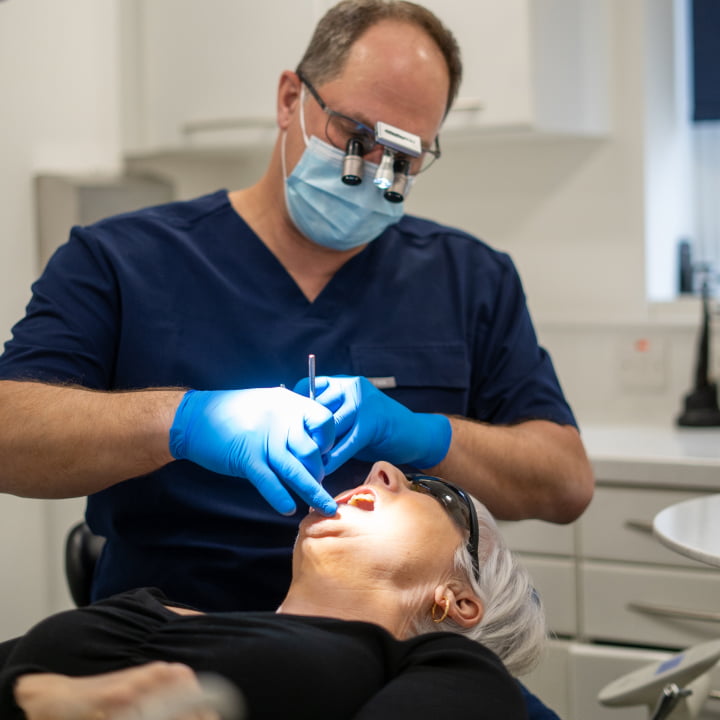Just like any other part of the body, teeth are prone to infection.
With root canal treatment, our experienced dentists can save your tooth from the brink of failing and needing to be removed.
Quickfire Guide To Root Canal Treatment
- Treatment Type: treatment to save your tooth from infection and extraction.
- Benefits: it can save a tooth from needing to be removed and replaced.
- Process: consultation + disinfection + restoring your tooth with a crown or filling.
What Does Root Canal Treatment Do?
Root canal treatment is a genuine lifeline for your tooth if it’s sustained an infection.
It involves removing a tooth’s central nerve and blood supply where an infection has set in. Once removed, the empty canal is disinfected and then sealed to prevent reinfection, and then the tooth can be protected with a custom filling or crown.
The success rate of root canal treatments today is very high, particularly if performed by our Resident Endodontist, Dr Spencer Richman.
Gone are the days when this was a painful drawn-out procedure; Spencer is usually able to perform the whole root canal treatment in one visit!
What To Expect
Modern root canal treatment is nothing like what you may have experienced in the past. Modern techniques rely on excellent magnification (root canals are very small!)
We’ve invested in surgical microscopes, helping our dentists to work with amazing precision when they get to the task of disinfecting your tooth. This, coupled with their remarkable level of dexterity, allows our dentists to consistently perform successful tooth-saving root canal treatment.
FAQs
How do I know if I need root canal treatment?
Frustratingly, dental infections often evolve without any symptoms (which is why it’s really important to come to your routine check-ups, where we’ll use our high-magnification loupes to spot tiny patches of decay early on).
If you experience any of the following symptoms, give us a call (don’t wait until your next routine check-up):
- Tooth sensitivity that lingers and doesn’t necessarily happen after having really hot or cold food and drink.
- You’ve noticed the shade of a tooth change.
- You have a bad taste in your mouth.
- You have a small lump around a tooth (this could be a dental abscess and requires antibiotics).
Does root canal treatment hurt?
We’re not just saying this, it’s true – modern root canal treatment is genuinely not the painful and intense procedure it used to be.
We will use anaesthetic before disinfecting your tooth, numbing the entire site so that you don’t feel a thing.
We can also offer sedation if you’re feeling anxious about the procedure – this can really help if you suffer with anxiety or fear of the dentist.
How long does root canal last for?
Approximately 9 out of 10 teeth survive for 8-10 years following root canal treatment.
It’s possible to retain a root-treated tooth for longer if you look after it well by avoiding decay and protecting your teeth from injuries.
We can provide you with advice on how to minimise dental infections in the future. Remember that teeth can’t self-repair, so protecting them is really important.
Back to General Dentistry








